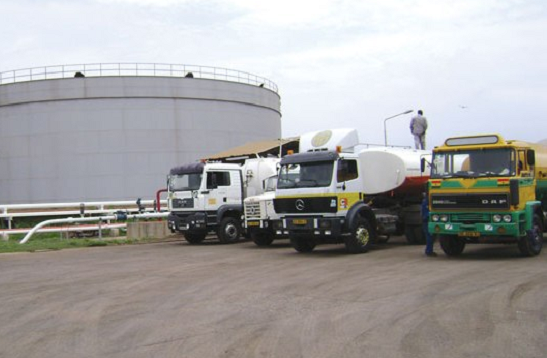Fears are being expressed about the registration of Bulk Road Vehicles (BRVs) to convey petroleum products across the country.
A credible source that spoke to The Chronicle alleged that the registration of petroleum product carriers is being compromised.The situation, apart from creating fertile grounds for easy diversion of petroleum products and rendering their transportation a ticking time-bomb, is also creating tension among properly registered owners of these vehicles.
The National Petroleum ACT 2005 (ACT 152) requires all BRVs, apart from being legally registered, to have documentation which includes Certificates of Incorporation and Commencement of Business; Certificate for Carrying LPG; Vehicle Insurance Certificate (Comprehensive); Driver and Mate Accident Insurance Policy and Goods-In-Transit (GIT) Insurance Policy. Other requirements are Driver Vehicle & Licensing Authority (DVLA) Road Worthiness Certificate and Testing Certificate from Road Safety Limited/State Transport Corporation.
The Chronicle has, however, established that the above requirements are not being adhered to in the registration of some new trucks. It is being alleged that some of the new trucks are owned by persons without registered companies and no inspections conducted on them as required, therefore, sidestepping safety matters. In some of the cases, persons have been allegedly registered without vehicles or garages.Â
Every month, the Bulk Oil Storage and Transport (BOST) dispatches 1,000 BRVs, with a total product cost of GHC200 million.
The risk associated with the current trend is that the system becomes vulnerable for diversion since some of the trucks do not have proper address systems to be traced in the event of mistrust.On Wednesday, May
On Wednesday, May 3 2017, The Chronicle blew the cover of a cartel operating in the petroleum sector, which was diverting fuel meant for export, to the local market.Â
Their modus operandi, The Chronicle gathered, is to load petroleum products from various storage points such as the Accra Plains Depot, Chase Petroleum, Tema Fueltrade, Sahara and Cimus, using vehicles fitted with foreign registration plates from the Sahel states.
After leaving the depots, the foreign registered number plates are replaced with local ones for diversion into tanker yards dotted around the Tema Heavy Industrial Area, Kpone Barrier, Golf City and Bethlehem.
Shockingly, waybills accompanying the products from the loading depots are conveyed to the nation’s designated exit points and fraudulently recorded as having crossed our borders into neighbouring states.
The Deputy Minister of Finance, Mr Kwaku Kwarteng, speaking to the media in Tema recently, declared the readiness of the government to combat the activities of the cartels in the in the local oil industry.
The cartels have been identified as responsible for not only revenue loss to the state, but also smuggling sub-standard petroleum products into the country.
Credit: The Chronicle





